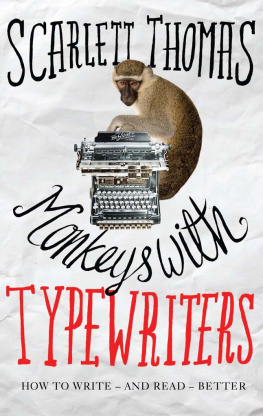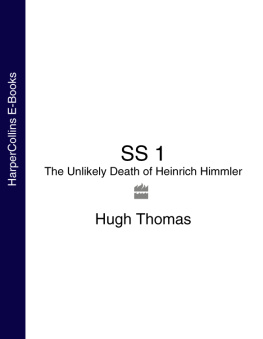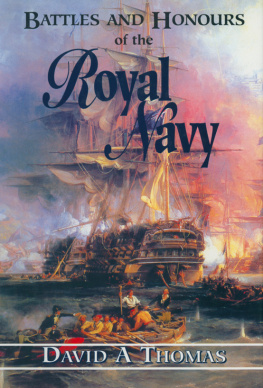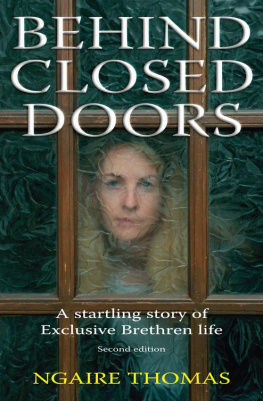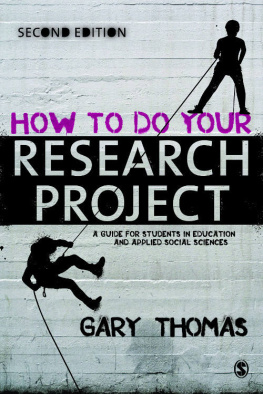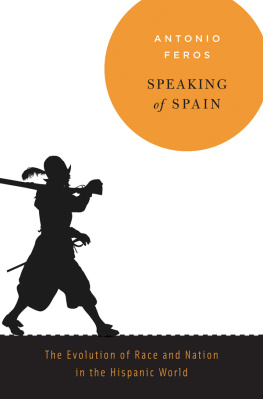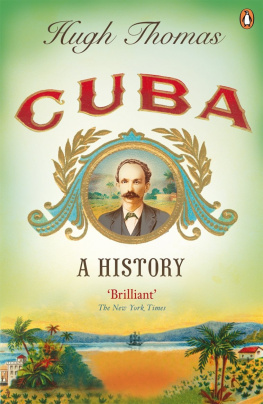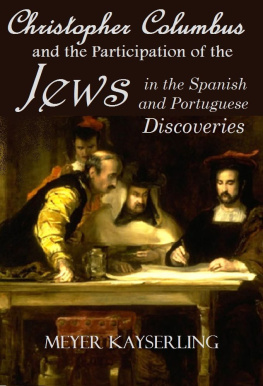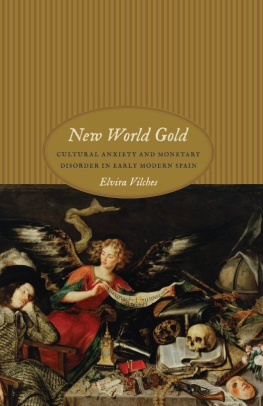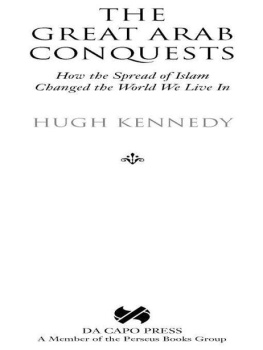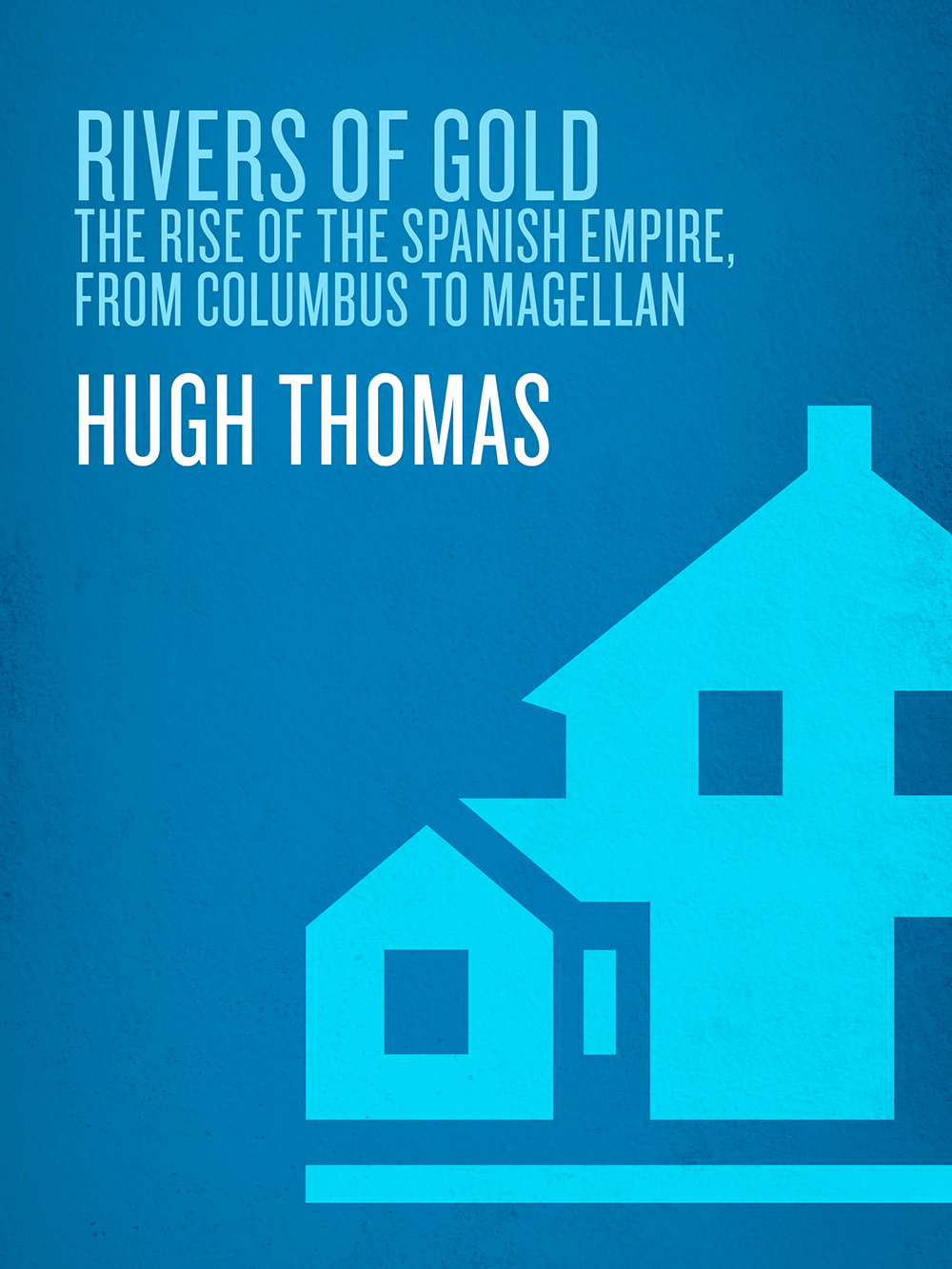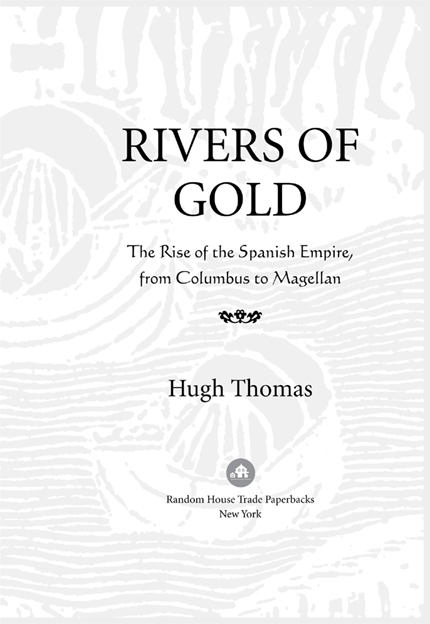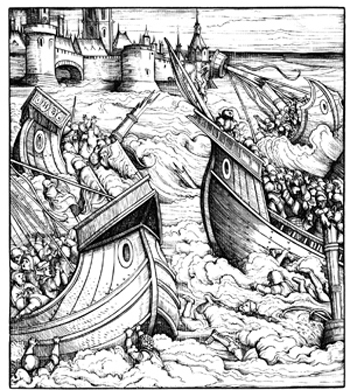Praise for
RIVERS OF GOLD
Rivers of Gold has an unflagging narrative, a host of characters and a way of holding the readers attention.
Los Angeles Times Book Review
Magisterial Rivers of Gold would be an astonishing work by any author, yet its publication simply affirms Hugh Thomass record as one of the most productive and wide-ranging historians of modern times.
The New York Times Book Review
Written with enormous verve and panache [Thomas] luxuriates in the details of people and places that bring his story to life.
The New York Review of Books
Handsomely illustrated and written with verve This sweeping narrative of the early years of the Spanish main is quintessential Hugh Thomas: big, bold, informative and meticulously researched. It is the kind of history in the grand manner for which Thomas is famous.
The Washington Post Book World
Thomas puts his erudition to fine use analyzing, with care and sensitivity, the thirty elastic years that utterly redefined Western civilization.
The Boston Globe
Engagingly presented, this book clearly shows the authors passion for his subject.
Booklist
A fascinating account of mans conquest of the sea, enabled by his heroism and unbounded imagination, and caused by his urge to discover the unknown as well as by his parallel thirst for gold, which gave rise to his baseness, brutality, and treachery. The authors description of men and events is generally marked by acute observation, many worthful data hitherto ignored, and a rare sense of objectivity.
B ENZION N ETANYAHU
No one writes better than Hugh Thomas on the heartbreaking clash of civilizations that produced the Spanish Empire. This book is an event in itself, full to the brim with knowledge, color, and deep understanding.
A NN W ROE , author of
The Perfect Prince and Pontius Pilate
Rivers of Gold is history in the grand manner. Hugh Thomas has written a vivid, dramatic, and compelling narrative of the rise of the Spanish Empire to world domination.
A RTHUR M. S CHLESINGER , J R .
Hugh Thomas is a scholar not only thoroughly familiar with the written sources of Spanish history but also one personally acquainted with the regions where it unfolded. This lends his account of the discovery of America and of the early contacts with its peoples unique vividness as well as authority. Rivers of Gold is a masterly account of what is arguably the most important event in Europes millennial history.
R ICHARD P IPES ,
Baird Professor of History, Emeritus,
Harvard University
Hugh Thomas has now retold this remarkable storyor at least the first thirty years of itin a splendid volume, bold and strong in its outlines, rich in fascinating details, punctuated by well-chosen quotations from contemporaries and eyewitnesses, and accompanied by many maps and excellent illustrations. It is an ambitious project, magnificently carried out.
P AUL J OHNSON
2005 Random House Trade Paperback Edition
Copyright 2003 by Hugh Thomas
All rights reserved.
Published in the United States by Random House Trade Paperbacks, an imprint of The Random House Publishing Group, a division of Random House, Inc., New York
R ANDOM H OUSE T RADE P APERBACKS and colophon are trademarks of Random House, Inc.
Originally published in hardcover in the United States by Random House, an imprint of The Random House Publishing Group, a division of Random House, Inc., in 2004 and in the United Kingdom by Weidenfeld & Nicolson, London in 2003.
Library of Congress Cataloging-in-Publication Data
Thomas, Hugh.
Rivers of gold : the rise of the Spanish Empire, from Columbus to Magellan / Hugh Thomas.
p. cm.
Includes bibliographical references.
eISBN: 978-0-8041-5214-3
1. Latin AmericaHistoryTo 1600. 2. Latin AmericaDiscovery and explorationSpanish. 3. Latin AmericaDiscovery and explorationReligious aspects. 4. SpainHistoryFerdinand and Isabella, 14791516. 5. SpainHistoryCharles I, 15161556. 6. SpainColoniesAmericaHistory16th century. I. Title.
F1411.T36 2004
980.01dc22 2003069316
Random House website address: www.atrandom.com
v3.1_r1
To carry out the conquest of so many countries, to cross so many seas and so many rivers, valleys, forests and mountains, to travel down the Amazon from its headwaters in Peru to the Atlantic, as the astonishing Orellana did, to challenge Moctezuma and Atahualpa in their own countries, as Corts and Pizarro did, to survive the march along the banks of the wonderful river Magdalena, some great idea was needed as well as human will (human will not calm calculation), something which focused the mind was necessaryjust as some idea was necessary to sustain the Spaniards in their seven hundred years struggle against Islam.
AMRICO CASTRO ,
The Structure of Spanish History
How many valleys and how many flowers, simple and delicious! How many sea coasts with very long beaches and most excellent ports! How many and what vast lakes! How many fountains both hot and cold, very close, some of them, and others farther away !
GONZALO FERNNDEZ DE OVIEDO ,
Historia general y natural de las Indias
Here I cannot forbear to commend the patient virtue of the Spaniards: we seldom or never find any nation hath endured so many misadventures and miseries as the Spaniards have done in their Indian discoveries; yet persisting in their enterprises, with invincible constancy, they have annexed to their kingdom so many goodly provinces, as bury the remembrance of all dangers past. Tempests and shipwrecks, famine, overthrows, mutinies, heat and cold, pestilence and all manner of diseases, both old and new, together with extreme poverty and want of all things needful, have been the enemies wherewith every one of their most noble discoverers, at one time or another, hath encountered.
SIR WALTER RALEIGH ,
The History of the World
Contents
Book One
SPAIN AT THE CROSSROADS
Book Two
COLUMBUS
Book Three
BOBADILLA AND OVANDO
Book Four
DIEGO COLN
Book Five
BALBOA AND PEDRARIAS
Book Six
CISNEROS
Book Seven
CHARLES, KING AND EMPEROR
Book Eight
NEW SPAIN
Book Nine
MAGELLAN AND ELCANO
Book Ten
THE NEW EMPIRE
()
Illustrations
Front Matter
A sea battle. Engraving by Hans Burckmaier, c. 1520.
Frontispieces
Book One: The frontispiece of Amads de Gaula, first edition, Saragossa, 1508 (British Library).
Book Two: Indians flee as Columbus makes landfall. Illustration in Columbuss letter describing his discoveries, De insulis inventis epistola Cristoferi Coln, Basle, 1493 (Biblioteca Capitular, Seville: Mary Evans Picture Library).
Book Three: Philip the Fair greets Princess Juana. Engraving Der Weisskunig in the autobiography of Emperor Maximilian I (Cambridge University Library).


